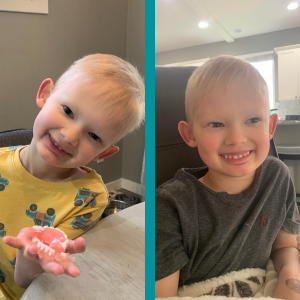Oral health care for teeth affected by ectodermal dysplasia can often be complex. The dental symptoms can vary by what type of ectodermal dysplasia affects you. It can get further complicated if your dentist does not have experience in treating the condition or says you must wait until adulthood to explore treatment. On top of that, treatment can be costly for families in the United States if their medical insurance denies benefits.
It’s understandable if some or all of this has you perplexed or overwhelmed. You may feel you have more questions than answers. When can your little one get dentures? How old does she have to be for implants? How often will you need to replace my denture? What about ads saying you can get dental implants in a day?
Before you throw your hands up and give up, we have a wonderful resource to help you and answer your questions. Rest assured that dental treatment is possible for affected individuals of all ages who have ectodermal dysplasia. The NFED strongly advocates for the early and ongoing treatment of ectodermal dysplasia teeth since the benefits far outweigh the challenges.
Resources for Treating Your Ectodermal Dysplasia Teeth
We have two excellent guides to help you on your dental treatment journey. You can also find additional resources in our library. A Dental Guide to the Ectodermal Dysplasias is a great place to begin if you are starting to think about dental care for your child.
Our second guide, Oral Health Care for Individuals Affected by Ectodermal Dysplasias, is more comprehensive and recommends best practices for care of ectodermal dysplasia teeth for individuals in specific age categories. Our team of dental experts recently updated and revised this guide.
According to the authors, “Dental treatment is particularly important since it is critical for a normal diet, facial appearance, speech, and emotional development. This booklet provides helpful information for anyone involved in decisions about dental care for people affected by ectodermal dysplasias.”
You can download the guide or contact the NFED for printed copies for yourself, your dental team and even your insurance provider.
Download Oral Health Care Guide
Treatment Guidelines
Following are just a few of the recommendations made in the guide for treatment based on age. Download the guide to get our complete recommendations.
Treatment Options for Preschool Children (0-6 Years)
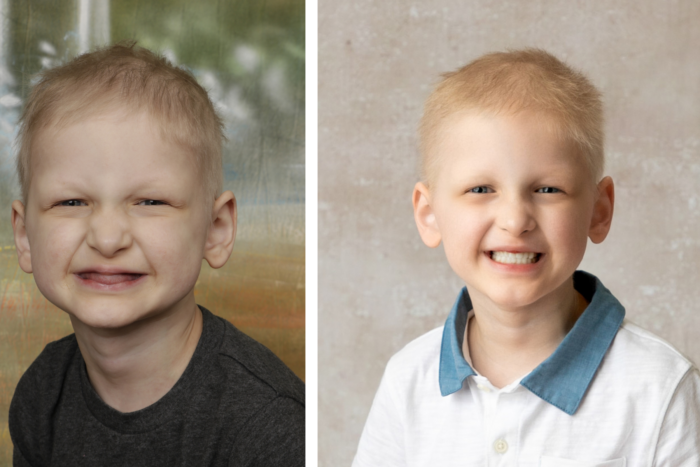
The American Academy of Pediatric Dentistry recommends that children visit a dentist when they are one year old or six months after their first teeth have erupted. If your child is affected by ectodermal dysplasia, they should see a dentist when they are diagnosed.
- Dentures must be size and age appropriate. Typically, dentures can be considered around the age of three.
- Provisional non-rigid fixed or removable prostheses may be appropriate.
- Implant prostheses are NOT recommended for children in this age group.
- Managing child behavior in this age group is critical. Working to help address a young child’s oral health issues while working to create a positive and accepting mindset towards a lifetime of oral health care is essential.

Treatment Options for School Age Children (7-12 Years)
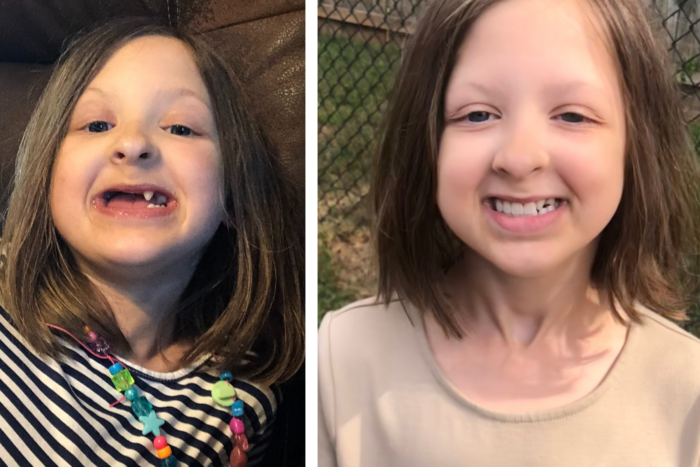
The goals of dental intervention for elementary school age are to prepare for the transition from primary to secondary dentition, to minimize the influence of existing dental abnormalities on facial growth, and to enhance speech, chewing, swallowing and esthetics.
- Prostheses to replace missing teeth are particularly important for this age group.
- If complete dentures are considered, both upper and lower prostheses are recommended since opposing dentures improve esthetics, function and retention.
- Minor tooth movement, root canal therapy and selective extraction of teeth should be considered only to allow successful prosthetic treatment.
- Grafting of alveolar bone is not recommended for affected children in this age group.
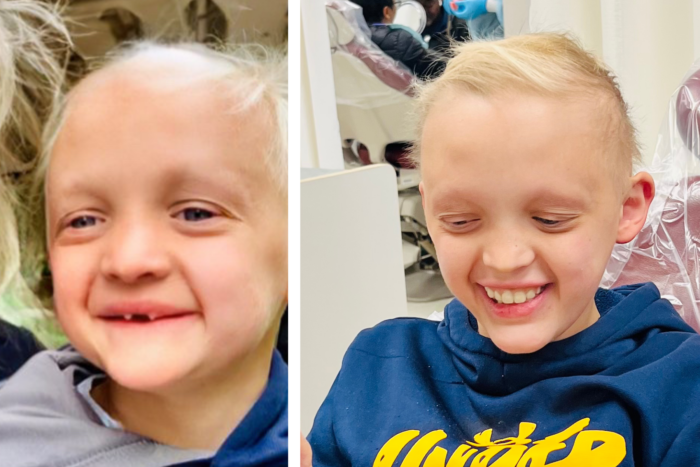
Treatment Options for Adolescents (13 Years-Skeletal Maturity)
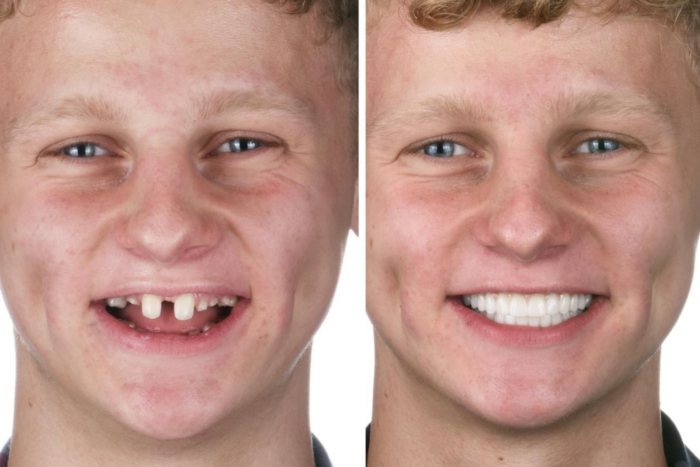
Each person’s growth finishes at a different time. The dentist will need to assess your child to see where they are in their growth to determine treatment.
- Because treatment is often complex, a multi-disciplinary or team approach is recommended and decisions should be made jointly by affected individuals and the involved dentists.
- Rigid, fixed prostheses are not typically recommended for adolescents because they might interfere with growth of the dental arches.
- Affected individuals who are missing their lower front teeth or whose lower front teeth cannot be used as anchors for prosthetic appliances may be candidates for implants.
- Implants are recommended only for the anterior portion of the mandibular arch unless craniofacial growth is complete.
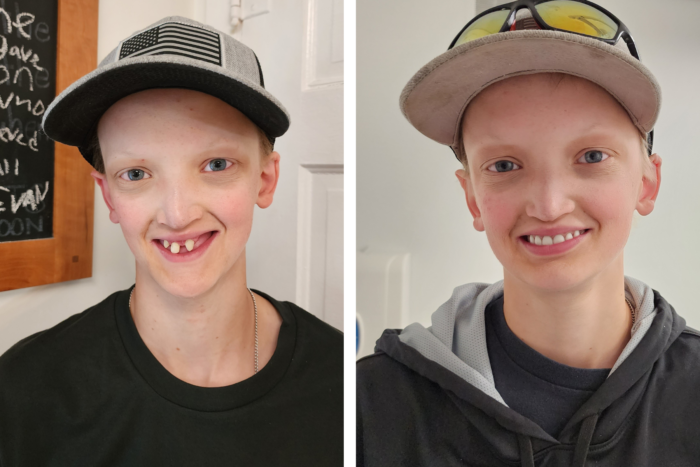
Treatment Options for Adults
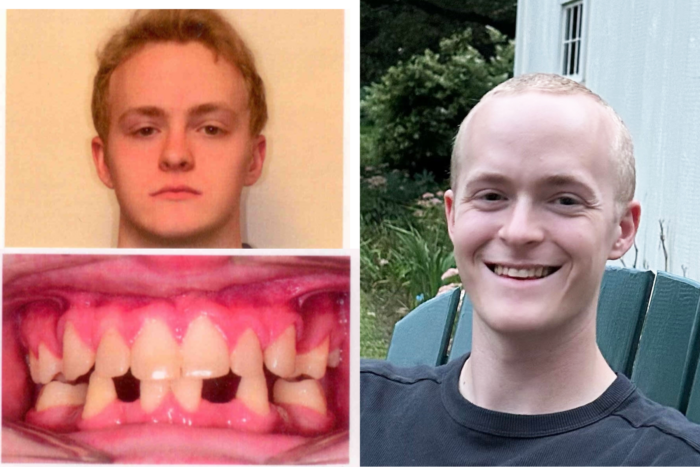
The goals of treatment for adults are to restore complete function and to optimize esthetics.
- Rigid fixed prostheses are appropriate since craniofacial growth is complete.
- Implants may be used anywhere in the dental arches and if necessary, bone grafting prior to implants is appropriate.
- For adults who have enamel dysplasia, esthetic bonded restorations or other full crown coverage restorations are appropriate.
- Comprehensive orthodontic tooth movement and selective extraction of teeth will allow optimal prosthetic therapy.
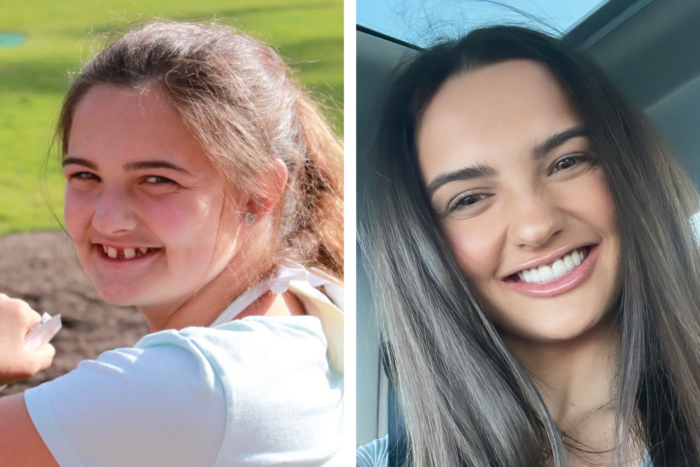
Other Considerations
Read the Oral Health Care Guide to learn more about other factors that can impact your treatment plan. These include insurance, timing and duration of diagnosis and treatment and consideration of other medical issues you may have.
Mason just got his first set from Dr. Conklin! He woke up and said, ‘Mama, can I practice my new teeth today?’ It’s been quite the journey to get here, but his enthusiasm makes it all worth it!
– Rebekah, Mason’s mom. Mason’s photos are at the very top.
Taking care and restoring your ectodermal dysplasia teeth is essential. We hope these recommendations and our guide will help you and your dental team make the best decisions for you or your child. The NFED is here to help you on your dental journey. Call our office at 618-566-2020 if we can provide support or answer questions.
